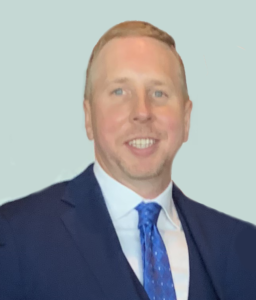 As part of the Meet the Controller series, the Controllers Council recently interviewed Brandt Kucharski, Chief Accounting Officer (CAO) of Ethos Life.
As part of the Meet the Controller series, the Controllers Council recently interviewed Brandt Kucharski, Chief Accounting Officer (CAO) of Ethos Life.
Brandt Kucharski is Chief Accounting Officer at Ethos, a technology company focusing on life insurance, on the path to IPO and former CAO of GrubHub, the unicorn pioneer of the restaurant delivery category. Brandt also volunteers as a board member for the Holiday Heroes Foundation and the Northern Illinois University Accountancy board. Last year Brandt was recognized as the 2020 National Controller of the Year and is our newest advisor on the Controllers Council Board of Advisors.
Following are some questions from Lindy Antonelli and answers from Brandt Kucharski. If you are interested in learning more, view the full interview video archive here.
Q: What inspired you to pursue a career in accounting and corporate finance?
A: It’s interesting that I started my career off as a computer engineer. My first two years of school I took CPlusPlus, Pascal, Cobal, all this stuff. I don’t have the greatest story in the world before I switched, but I was taking these coding classes. Back then there were no laptops and you had to go to the computer lab and stay until 3:00 in the morning, get stuff done and wait times. I decided, hey, computer programming, I enjoy it, but maybe it’s not the right career for me and I switched to business.
Then once I was in business, I took an accounting class and I fell in love with it right away. I love the logic and kind of thought behind trying to solve a problem presented with facts and different scenarios that are presented. Accounting is a lot more than debits and credits. It’s decision-making using kind logic and thought patterns and looking at things from a bunch of angles
Q: Tell us about the most significant keys to your personal success?
A: I think you ask people about working with me, I’m proactive. I tend to look down the road nine months ahead of time, 12 months and really let people know, like, “Look, I see something that could be a challenge now. If we don’t deal with it now, we’re going to pay the price nine months later.”
I think the second thing is I alluded to this a little bit earlier, but you have to be able to speak common language when you speak with CFOs, CEOs, other people on the board, and really relate with them and communicate accounting standards or implications without losing the message in the reader.
Then I think the third thing is I lead with a big heart. I lead with empathy. My team at GrubHub was like my family. I treat my team at my new company Ethos the same way. I care about them. I care about their backgrounds, their family, their kids, and I treat them like family, and it goes a long way.
Q: What kind of tools have you used at your various company’s software technology? How does that play into the employee success, maybe automation and making their job more enjoyable? How would you say technology, especially in the accounting and finance world, help companies?
A: Well, I remember when I joined GrubHub, we were on QuickBooks, and it was ready to break. This is 12-13 years ago. But we were processing probably 6,000 checks a month. Even at that volume, I think QuickBook was kind of dying on us. We put in Intech, which was awesome and kind of linked our entire ordering database from internal system at GrubHub to Intech float in. We were paying hundreds of thousands of checks by the time I left out there and information and orders and everything in there. Having a good ERP that works can integrate seamlessly is so important and kind of has good public company controls. That was big for me.
Q: Can you share something interesting about your career that maybe you didn’t expect or that surprised you?
A: I couldn’t believe how different corporate America was from public accounting. Before GrubHub, I came from a big accounting firm before GrubHub and just the culture environment dynamics of how work actually happened was so much different. I mean, in public accounting, your client will go to you and say, “Look, we got this transaction. Can you take a look?” You’re kind of reviewing after it’s been signed and kind of after the fact. You do your research, you look at it, you may run up the national and you have a week or two or three weeks to kind of pine on it. You take your time. In corporate America, it doesn’t work that way. Somebody will come to you on a contract on a Thursday and say, “Look, we’re thinking about this contract. Can you look and give me your thoughts? I want to make sure that there’s not some goofy revenue recognition.” You have a day to do it. You don’t have the chance to necessarily run this through five other people or wait three weeks. You’ve got to kind of give a decision and come up with an answer quickly. It happens real fast. That, I think the pace was much different.
Q: What advice would you give to others that are maybe seeking a controllership, a CAO, CFO career?
A: The best advice I can give is you have to push your current boss to give the exposure to the audit committee, complex issues, get exposure to management and kind of exposure to things outside of just doing month end close. Second is you got to get experience with the audit committee. You’re not going to be talking during that audit committee, but it’s very, very valuable to listen and kind of hear the questions the audit committee asks.
To learn more, view the full discussion here.




